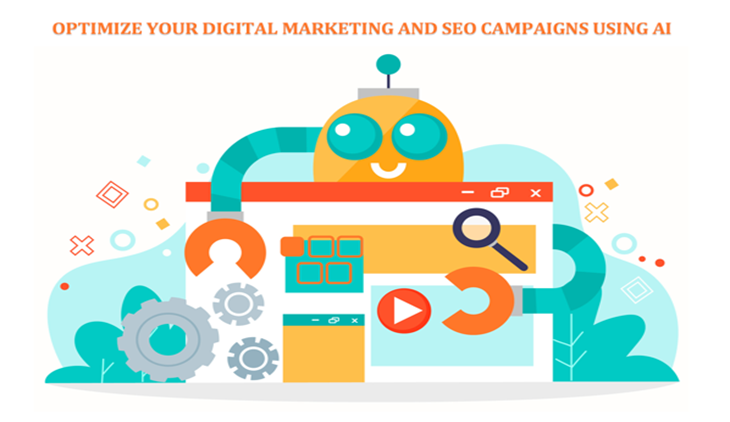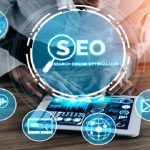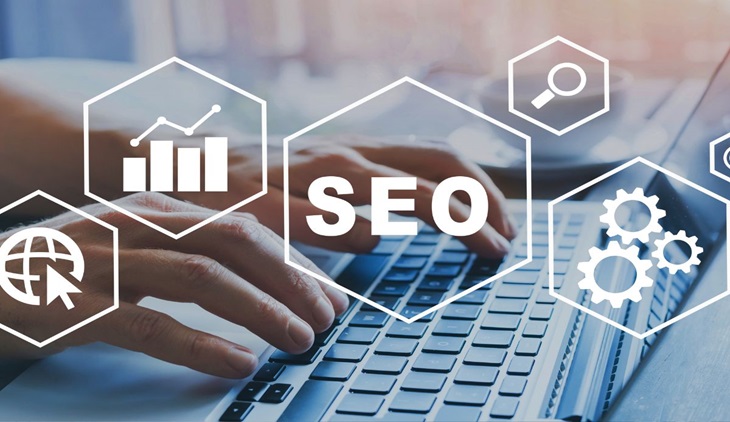
How do businesses get to the top of search engine results pages with immense traffic without putting in effort?
In the ever-changing world of digital marketing, brands are already leveraging AI to supercharge their marketing and SEO efforts. Old strategies will not work in the competitive online space. AI tools provide insights, content personalization, and process automation to improve efficiency and effectiveness.
Companies, regardless of their size, can optimize marketing ROI while reducing marketing spending. In this article, we discuss how AI changes the paradigm of digital marketing and SEO campaigns, along with actionable tips that will sustain you against competition.
Role of AI in Digital Marketing
AI in digital marketing is truly transformative as it enables brands to monitor and interpret consumer behaviors, analyze data, and even automate different processes. For example, machine-learning algorithms can analyze large data sets and identify trends and patterns while giving consumers a much-needed personalized touch.
With AI, brands can enhance their marketing strategy, resulting in better customer engagement, more conversions, and higher precision. AI also finds applications in chatbots, email marketing, content marketing, social media management, and even paid ads. Marketers can redirect their efforts to planning and strategy by automating these mundane tasks.
Marketers who incorporate AI into their strategy can spend more time thinking up creative ideas. It is a huge win-win situation for the companies, including marketers and consumers. Marketers make decisions based on data analysis and improve their campaigns to achieve higher targets.
AI-Powered SEO Optimization
Optimization of search engines using artificial intelligence makes them a lot more advanced than they already are. AI increases the precision for optimizing strategies to focus on greater online visibility.
Multiple AI tools allow us to track change patterns in search algorithms and make necessary adjustments, or even changes, to the current strategy. These tools allow the marketer to understand the complete user’s intent and allow businesses to optimize content in a way that helps achieve higher rankings.
AI features like Surfer SEO, Clearscope, and MarketMuse allow users to configure the content structure of pages that need to be more competitive compared with other pages.
Tools that incorporate AI like these will also boost the level of technical SEO by monitoring pages to discover errors, page speed improvements, and changes to metadata. It helps businesses develop content that meets the current search queries from users and can still satisfy algorithms put in place by search engines.
AI-Driven Keyword Research
Researching keywords is one of the primary steps in an SEO campaign, and AI can aid you in accomplishing that with ease. Keyword analysis does not have to be complicated to perform, and AI performs all the heavy lifting through analysis and guesswork.
SEMrush and Ahrefs, along with Google’s AI-featured RankBrain, examine the search queries and provide statistics on the keywords, like their difficulty, volume, and user intent.
AI can predict new trends and help businesses capture the desired keywords before they become overly competitive. This leads to extraordinary ranking advantages along with an increase in organic reach.
Personalized Content Creation with AI
Effective written communication is still considered central to marketing strategy, but freelance writers do not have the potential to implement it in an attractive way for audiences to engage.
Relevant content, on the other hand, can be crafted using AI. Jasper, Copy.ai, Writesonic, and other platforms can produce quality content targeting specific speakership demographics. These platforms tailor blogs, descriptions, and even social media posts based on the analysis of campaigns to ensure that the marketers talk to the right audiences.
Personalization becomes much easier with AI since people love it when web pages speak to them, leading to more extended visits and better conversion rates. Individualized content using AI alters brands’ standard polished content to fit users.
AI and Social Media Marketing
Social media is key in digital marketing, and AI offers further productivity. For example, audience behavior is analyzed, posting schedules are optimized, and engagement metrics are tracked. Hootsuite, Sprout Social, and Buffer assist users with AI-derived analytics that suggest the most effective content types.
Customer inquiries are addressed by AI chatbots that improve usability through instant responses. AI sentiment analysis gives businesses insight into how their audience views them so they can improve their social media approaches.
Marketers can use AI to automate content posting, brand monitoring, and advertisement targeting to enhance overall engagement and interaction with their content.
AI for Email Marketing Automation
Email marketing does its job well when it comes to engaging with customers, and now AI makes it so much better. AI-powered platforms study the subscribers to segregate audiences according to their interests and level of interaction.
Emails are personalized using AI-driven tools from Mailchimp, HubSpot, and ActiveCampaign by changing the subject line and body of the email. AI picks the best times to send emails, thus improving the chances of them getting opened and converting to sales.
Nurture workflows are automated to guide prospects through the funnel. Using AI makes it possible for companies to design focused campaigns for emails that will engage more and increase revenue.
AI in Paid Advertising and PPC Campaigns
Driving traffic to a website using paid ads is made easier with Paid Advertising, and AI enhances PPC campaign performance. By analyzing data, AI can find where the ads should be placed, what keywords to target, and which bids to strategy.
Ads worth Google and Facebook’s expenditure ad PPC are placed directly through AI that manages spending and targeting of ads. Automation powered by AI changes bids during an ad campaign, saving the business from overspending on ineffective ads.
AI powers businesses’ PPC and reduces the cost of new clientele by identifying the best-performing ads. Through improved ad spending, AI increases effectiveness and returns on investment.
AI-Powered Website Optimization
A business-optimized website is essential for digital marketing, now aided by AI. AI tools study a visitor’s website activity to recommend areas for improvement. Crazy Egg and Hotjar are popular AI technologies that provide insights using user journey mapping and heatmaps of the visitor’s behavior on a website.
A/B testing AI sites automatically replaces the worst performing elements with the better website ones, increasing the conversion. AI saves and transforms responsive web structures for other devices to increase usability.
While maintaining business goals of improved conversion and retention, AI saves help companies achieve the optimal user experience of their websites.
AI and Voice Search Optimization
The growth of voice search is tremendous. AI contributes significantly to optimizing for this area. AI-powered NLP understands conversational queries and allows businesses to prepare suitable content for voice searches.
Quote AnswerThePublic and Frase as services. These tools analyze voice search patterns and recommend relevant content topics. During page optimization for voice search, AI sets the website structure to maximally capture featured snippets. Businesses that use AI voice search technology have a head start in the ever-changing digital world.
AI for Data Analysis and Consumer Insights
Does well with data analysis and gives excellent insights into customer actions and market movement. AI technology helps analyze vast amounts of data by spotting patterns and anticipating possible outcomes. Google Analytics, IBM Watson, Tableau, etc., all use AI to analyze data and formulate active strategies for their marketing plans.
AI Customer behavior analysis allows companies to customize their marketing plans based on predictive analytics. Fast data analysis enables decision-making in minutes to maximize the efficiency of targeted campaigns.
AI-powered customer insights enable marketers to understand their target audience, leading to focused targeting and optimized marketing strategies.
AI in E-Commerce Marketing
AI technology contributes significantly to the improvement of marketing strategies in e-commerce businesses. Enhances product offerings based on customer choices by tailoring the shopping experience. Sales can be boosted by using AI-enabled recommendation systems in Shopify and Magento.
Customer satisfaction and support are enhanced and instantaneously achieved through chatbots, which aid in lowering cart abandonment problems. AI-enabled dynamic pricing modifies set prices according to demand and competitor pricing.
E-commerce businesses utilizing AI technologies obtain more purchases, improve customer loyalty, and increase overall profitability. Businesses implementing WooCommerce pre-order plugins in their Woo store may also rely on AI to assist with product and inventory forecasting.
Future of AI in Digital Marketing
The predictions for using AI within CRM and marketing are highly constructive as enhancements will persist in reshaping the industry. AI will enable greater personalization, automation, and predictive analytics.
Newer technologies driven by generative AI, advanced chatbots, and AI-based video marketing will change how products are marketed. Most marketers will have to adjust and learn to depend on AI tools for further innovative development in branding as technology advances, ensuring business longevity against competitors and exceeding customer expectations.
Marketers will need to incorporate more AI strategies as AI-incorporated strategies will yield optimal success in CRM marketing.
Conclusion
AI simplifies and automates many elements of digital marketing and SEO, which proves helpful for businesses as they utilize the latest technologies. From researching the proper phrases to constructing relevant and targeted marketing materials, every aspect of digital marketing becomes easier due to AI integration.
By leveraging AI, businesses can automate processes, gain valuable insights, and stay ahead in the competitive digital landscape. Whether optimizing SEO, managing social media, or running paid ads, AI-driven solutions maximize marketing success.
To thrive in the digital age, businesses must embrace AI, using its capabilities to create impactful and result-driven campaigns. The future belongs to AI-powered marketing, and the time to adopt it is now.










Pingback: How AI is Changing the Job Market in 2025 - Nerdilandia
Pingback: Children and Technology: Setting Boundaries for Smartphone Use - Nerdilandia